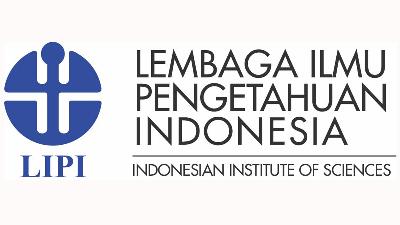The Effect of Workload on Role Stress and Burnout
Abstract
Keywords
Full Text:
PDFReferences
Heather, K., Spenc, L., Michael, L., Arla, D., and Debra, G. 2009, Work place empowerment, incivility, and burnout: impact on staff nurse recruitment and retention outcomes. Journal of Nursing Management 17, pp. 302–311
Andrea R. D., Jeffrey, W., and Stephen B. S. 2007. Empowerment, Motivation, and Performance: Examining the impact of feedback and Incentives on Non-management Employees. Journal of Behavior Research in Accounting, 19 : pp. 71-89
Luthans, F. 2011. Organizational Behavior: An Evidence –Based approach. New York: The Mc Grow-Hill Companies, Inc
Eka, Y., S. A. 2015. Hubungan antara Dukungan Sosial dengan Burnout Pada Perawat. Jurnal Publikasi Manajemen Universitas Muhamadiyah Surakarta. pp. 1-15
Shailesh, K. 2018. Preventing and Managing Burnout: What have we learned? Biomedical Journal of Scientific & Technical Research (BJSTR). 2(1): pp. 1-4
Denise, A. J. S., Francine, N. M., Arthur, E. M., Alberto, D. G. L, Lopes, G., Selma M. A. 2017. Physical, psychological and occupational consequences of job burnout: A systematic review of prospective studies. International Journal Consequences of Job burnout. 12(10): pp. 1-29
Arie, F, Dovi, S. 2015. Pengaruh Beban Pekerjaan terhadap Kinerja Karyawan: Efek Mediasi Burnout. Jurnal Manajemen dan Kewirausahaan. 1(2): hal: 30-59
Johana, P., Aries, Y., Ervy, W. 2007. Pengaruh Dukungan Sosial Terhadap Burnout Pada Guru. Jurnal Psikologi. 5(1): pg. 77-87
Sarah, Q., Amir, G, Waqar, H., and Hassan, S. 2015. Influence of Work Overload, Work-Family Conflicts and Negative Affectivity on Job Embeddedness and Emotional Exhaustion: The Moderating Role of Coworker Support (Case of Health Management). Journal of Scientific Research & Reports. 7(1): pp. 75-85
Fernaldi, K. 2015. The Impact of Burnout towards Organizational Citizenship Behavior (OCB) in Premier Surabaya Hospital. International Journal Business Management. 3(2): pp. 285-294
Weiner, B. 2010. Attribution Theory, international encyclopedia of education, vol. 6. pp 558 - 563
Aaron, C. M. A. 2015. The mediating role of burnout on the relationship of emotional intelligence and self-efficacy with OCB and performance. Journal Management Research Review, 38(1): pp. 2-28.
Baron, R. A. and Grennberg, J. 2003. Behavior in organizations: Understanding and managing the human side of work (8th ed.). Upper Saddle River: Pearson Education
Mansour, Z., Hamed, Y., Meisam, Y, M., and Khandan. M. 2015. Level of Workload and Its Relationship with Job Burnout among Administrative Staff. International Journal of Occupational Hygiene.6 (3): pp. 53-60
Leung, M. Y., Sham, Y., and Chan, S. 2007. Adjusting Stressors – Job-Demand Stress in Preventing Rust out/Burnout in Estimators. Surveying and Built Environment. Vol .18 (1), pg. 17-26.
Yang, X., Ben-Jiang, M., Chunchih, L. C., and Chich-Jen, S. 2015. Effects of Workload on Burnout and Turnover Intention of Medical Staff: A Study. International Journal Ethno Med. 8(3): 229-237
Sedigheh, S., and Seyyed, A. M. N., 2018. Prediction of Job Satisfaction & Burnout on Criminal Judges Based on Skycap. Psychology and Behavioral Science International Journal. 9 (5): pp. 1-7
Melati, P, I. P., dan Surya, I. B. K. 2015. Pengaruh beban kerja terhadap kepuasan kerja dengan stres kerja sebagai variabel mediasi. Jurnal Manajemen Unud, Vol. 4, No. 5, hal. 1149-1165
Rajan, S., Barjinder, S., Peggy, A. C. 2016. Role of personality and effect on the social support and work family conflict relationship. Journal of Vocational Behavior. 9(4): pp. 39–56
Hanna, H. 2015. Hubungan Efikasi Diri Dan Dukungan Sosial Dengan Burnout Pada Perawat. Jurnal Psikologi Indonesia. 4(1): h: 31-43
Syed, H. L. 2014. Role of Work-Family Conflict in Job Burnout: Support from the Banking Sector of Pakistan. International Letters of Social and Humanistic Sciences Online.40 (1): pp. 1-12
T. R. Kazemi and G. M. Bagher, 2013. Evaluating the Relationship between Job Burnout And Organizational Citizenship Behavior: A Study of Industry, Mine And Trade Organization Employees. Arabian Journal of Business and Management Review. 2(8): pp: 50-61
Suwatno, H. and Priansa, D.J., 2011. Manajemen SDM dalam organisasi Publik dan Bisnis. Bandung: Alfabeta.
Hair, J. F., Black. W. C., Babin. B. J.; and Anderson. R. E. (2010), Multivariate Data Analysis, 7th ed. Pearson Prentice Hall, New Jersey
Refbacks
- There are currently no refbacks.

This work is licensed under a Creative Commons Attribution 3.0 License.
Supported by :


 Indexed by :
Indexed by :




